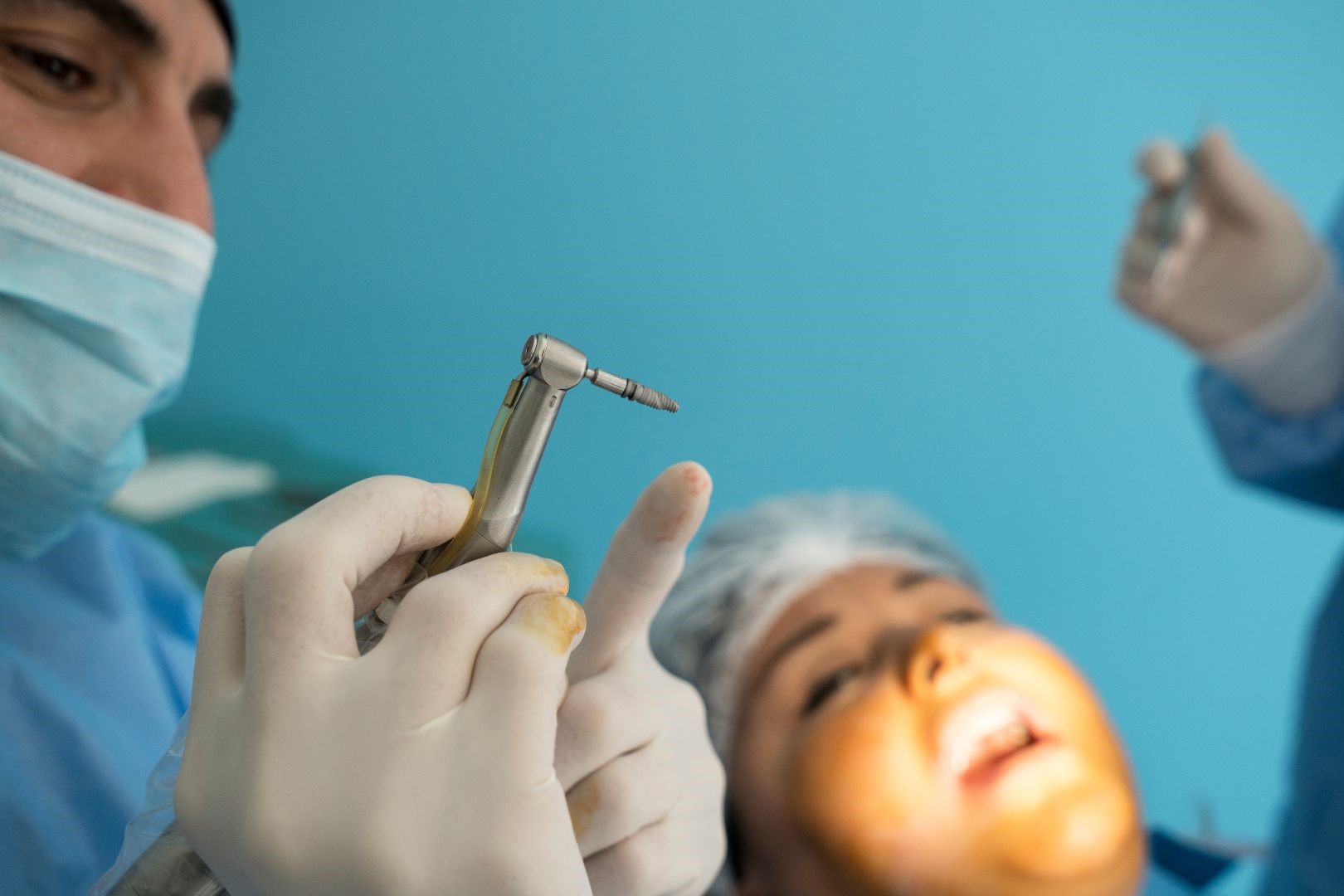Does Dental Implant Surgery Hurt? Step by Step Painful Status in Turkey, Antalya

What is dental implant surgery?
Dental implant surgery is a common procedure used to replace missing teeth and restore oral functionality. One of the concerns that many people have about dental implant surgery is whether it is painful.
While every individual's experience may vary, dental implant surgery is generally well-tolerated and discomfort can be managed effectively. In this response, we will discuss dental implant surgery in detail, including the steps involved, the potential discomfort, and the measures taken to ensure patient comfort.
What are the stages of teeth implants?
Dental implant surgery is a multi-step process that involves the placement of an artificial tooth root, known as a dental implant, into the jawbone. This implant serves as a strong foundation for a prosthetic tooth or crown. A local anesthetic is usually used during dental implant surgery to numb the area being treated. To help the patient relax throughout the treatment, more sedative methods could be employed in some circumstances.
First Stage:
The first step in dental implant surgery involves a thorough examination of the patient's oral health and a comprehensive treatment plan. This includes evaluating the condition of the jawbone, surrounding teeth, and gums. X-rays and 3D imaging may be used to assess the bone density and determine the precise location for implant placement.
On the day of the surgery, the dentist or oral surgeon will administer the local anesthesia to ensure that the patient does not feel any pain during the procedure. The anesthesia is usually administered via an injection near the implant area. While the injection itself may cause a slight pinch or stinging sensation, the discomfort is generally minimal and temporary.
Second Stage:
Once the anesthesia takes effect, the dentist or oral surgeon will make an incision in the gum tissue to expose the underlying jawbone. This step allows for precise placement of the dental implant. Some patients may experience pressure or vibrations during the drilling of a small hole into the bone to accommodate the implant. However, since the area is numbed, any discomfort is typically minimal.
Third Stage:
After the hole is created, the dental implant, which is usually made of titanium, is carefully inserted into the bone. The implant is then covered with a healing cap or a temporary crown, and the gum tissue is sutured back in place. At this stage, some patients may feel a slight tugging or pressure sensation,but it is generally not painful.
Following the surgery, it is normal to experience some soreness, swelling, and bruising in the treated area. These post-operative symptoms can usually be managed with over-the-counter pain relievers, such as ibuprofen or acetaminophen, as prescribed by the dentist or oral surgeon. Applying ice packs to the outside of the face can also help reduce swelling.
In the days and weeks following the surgery, the jawbone will gradually fuse with the dental implant in a process called osseointegration. During this period, it is important to follow the dentist's instructions regarding oral hygiene and dietary restrictions to promote healing and ensure the long-term success of the implant.
In some cases, a second minor surgery may be necessary to expose the implant after the osseointegration process is complete. This step involves removing the healing cap or temporary crown and attaching an abutment to the implant. The abutment acts as a connector between the implant and the final prosthetic tooth or crown. This second surgery is generally less invasive and causes minimal discomfort compared to the initial implant placement.
Fourth Stage
The final step in the dental implant process involves the placement of a custom-made dental crown or prosthetic tooth onto the abutment. This crown is designed to match the color, shape, and size of the patient's natural teeth, providing a natural-looking and functional replacement. The attachment of the crown is a relatively simple procedure that does not typically cause any significant discomfort.
If you have any questions you do not find here, please contact us.
